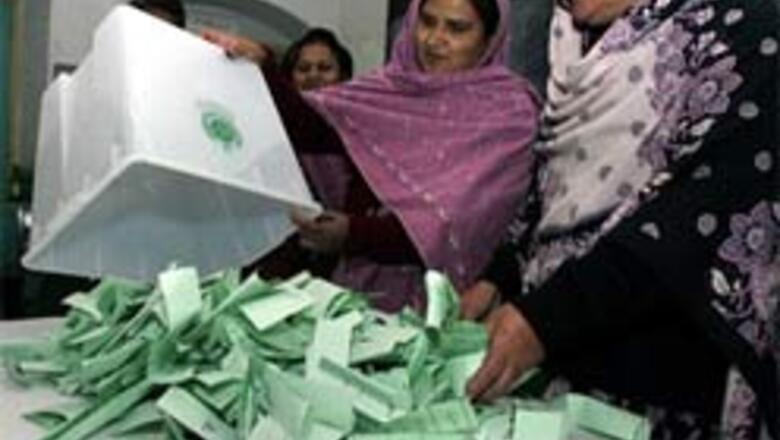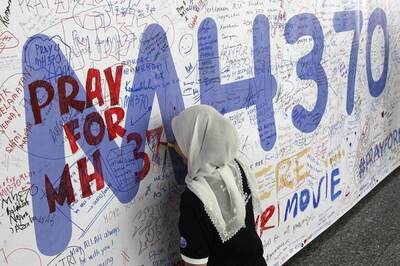
views
Islamabad: Counting began on Monday after the voting in Pakistan which was far less violent than feared, although it could result in a parliament set on driving US ally President Pervez Musharraf from power.
The former army chief called for reconciliation after casting his vote in the city of Rawalpindi, where opposition leader and former prime minister Benazir Bhutto was assassinated on Dec. 27.
The vote for a new National Assembly and provincial assemblies was to have been held early last month, but was delayed because of Bhutto's assassination. Polling stations closed their doors at 5 pm (local time).
Results are expected to start emerging by midnight and trends should be clear on Tuesday morning. The death of Bhutto, the most progressive, Western-friendly politician in a Muslim nation rife with anti-American sentiment, raised concern about stability in the nuclear-armed state.
More than 450 people have died in militant-related violence this year. Fear of more violence kept many Pakistanis away from the polls, despite 80,000 troops backing up police. Election official Mohammad Farooq estimated turnout at 35 pct at his polling station in Rawalpindi.
"Considering the security circumstances, that's good," he said as the polls closed. An intelligence official said 11 people have been killed, seven in Punjab province, and 70 wounded in election violence since voting began. In Bhutto's home province of Sindh, Home Secretary Arif Ali Khan said two people had been killed and 50 wounded in poll-related incidents.
"This is almost insignificant," said Khan, while expressing sorrow over the deaths. Musharraf, who came to power in a coup in 1999, pledged to work with the victors to build democracy in a country that has alternated between civilian and army rule throughout its 60-year history.
"Whichever political party wins, whoever becomes prime minister ... I congratulate them and I will fully cooperate with them as president," he told reporters.
Musharraf's popularity plunged over the past year because of his manoeuvres to hold on to power, which included purging the judiciary, and imposing six weeks of emergency rule. Many Pakistanis also blame the government for rising prices, food shortages and all-too-frequent power cuts.
Security concerns affect large parts of Pakistan. A suicide attack on Bhutto party supporters killed 47 people in a northwestern town on Saturday.
"You see suicide bombings everywhere and you can see the empty streets on polling day. It's all because of fear," said civil servant Mohammad Ijaz, voting in the city of Lahore where three people were killed in shootings late on Sunday. Militants set off bombs at four polling stations in the northwest, three in the Swat Valley, before polls opened, but no one was injured.
Army helicopters later attacked suspected militant hideouts in Swat, residents said. The other worry was vote rigging, which could prompt opposition parties to reject the result and call for street protests, raising concern over how the army would react.
A sympathy vote is expected to help Bhutto's Pakistan People's Party (PPP) become the largest party in the 342-seat National Assembly. Most analysts doubt the PPP can win a majority.
Whom it chooses for coalition partners will be vital to Musharraf. Bhutto's widower Asif Ali Zardari, co-chairman of the PPP, issued a conciliatory call for unity on the eve of the vote. He did not speak to reporters as he voted in Sindh.
The leader of the other main opposition party, former prime minister Nawaz Sharif, made a victory sign as he voted in Lahore. An alliance between the PPP and Sharif is what Musharraf dreads as Sharif is intent on bringing him down, perhaps through impeachment. Analysts say Musharraf wants a coalition between the PPP and the Pakistan Muslim League that backs him. Western allies want a stable Pakistan focused on fighting militancy, as do investors in a stock market that rose 40 percent last year but has shed about 3 percent since Bhutto's death.
Nearly 81 million people were registered to vote. Several hundred foreigners, including a team of US senators, and thousands of Pakistanis monitored the election but were not allowed to do exit polls.


















Comments
0 comment